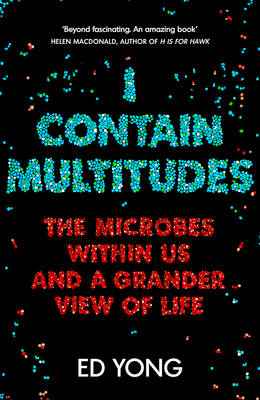Reviewed by MurderByDeath on
Reading updates
- Started reading
- 13 March, 2018: Finished reading
- 13 March, 2018: Reviewed

'Super-interesting … He just keeps imparting one surprising, fascinating insight after the next. I Contain Multitudes is science journalism at its best’ BILL GATES
SHORTLISTED FOR THE WELLCOME BOOK PRIZE 2017
A NEW YORK TIMES BESTSELLER
Selected as a Science Book of the Year by The Economist, The Times and Observer
Your body is teeming with tens of trillions of microbes. It’s an entire world, a colony full of life.
In other words, you contain multitudes.
These microscopic companions sculpt our organs, protect us from diseases, guide our behaviour, and bombard us with their genes. They also hold the key to understanding all life on earth.
In I Contain Multitudes, Ed Yong opens our eyes and invites us to marvel at ourselves and other animals in a new light, less as individuals and more as thriving ecosystems.
We learn the invisible and wondrous science behind the corals that construct mighty reefs and the squid that create their own light shows. We see how bacteria can alter our response to cancer-fighting drugs, tune our immune system, influence our evolution, and even modify our genetic make-up. And we meet the scientists who are manipulating these microscopic partners to our advantage.
In a million tiny ways, I Contain Multitudes will radically change how you think about the natural world, and how you see yourself.